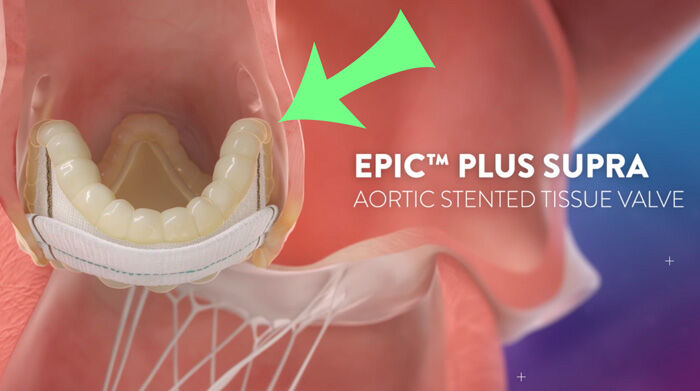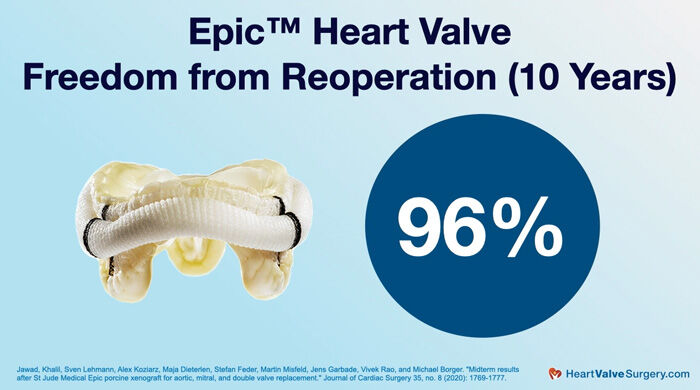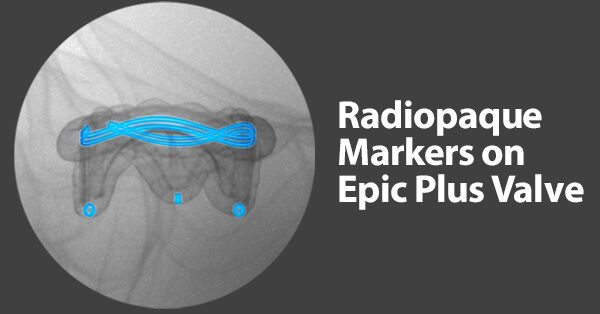Surgeon Insights: Durability of Biological Heart Valve Replacements
Written By: Adam Pick, Patient Advocate & Author
Medical Expert: Ibrahim Sultan, MD, Surgical Director, Center for Heart Valve Disease, UPMC
Published: August 29, 2022; This post is sponsored by Abbott.
A critical question for patients selecting a biological heart valve replacement is, “What is the expected durability of my biological valve replacement?” While the standard answer to this important question is 10 to 15 years, that response needs to be re-evaluated as new medical innovations may (i) enhance heart valve durability and (ii) provide non-invasive paths for heart valve reoperations using valve-in-valve therapies.
To learn about the latest medical advances in biological heart valve replacement durability, we met with Dr. Ibrahim Sultan, the Surgical Director of the Center for Heart Valve Disease at UPMC in Pittsburgh, Pennsylvania. During his fantastic career, Dr. Sultan has performed over 2,000 heart valve operations via open-heart, minimally-invasive and transcatheter approaches.
Key Insights About Heart Valve Replacement Durability
Here are key insights from Dr. Sultan about heart valve replacement durability:
- When a severely diseased heart valves is not repairable, that heart valve needs to be replaced using a biological or mechanical heart valve replacement.
- Biological heart valve replacements, also known as tissue valves or bioprosthetic valves, are typically made from tissue harvested from cows (bovine valves) and pigs (porcine valves).
- Mechanical valve replacements can theoretically last forever. “Mechanical valves have the ability to last forever,” states Dr. Sultan. “But, you have to take Warfarin or Coumadin, a blood thinner, for the rest of your life.”
 Epic Plus Supra Aortic Tissue Valve Replacement
Epic Plus Supra Aortic Tissue Valve Replacement
- Biological heart valve replacements typically last between 10 to 15 years. “Tissue valves generally can last anywhere from 10 to 15 years,” states Dr. Sultan. “The younger you are, the less longer they are likely to last. The older you are, the longer they are likely to last.”
- Dr. Sultan suggests that patients should research the durability data available for their heart valve replacement options. “It’s important to look at the durability data of each heart valve that you have or you may have,” states Dr. Sultan.
- Biological heart valve replacement devices are rapidly evolving with new devices and new innovations on established valves. “While new heart valves come out every few years, there are certain heart valves that have been available to patients for close to two decades with modifications to the original prosthesis. It’s important to recognize the number of patients who do not have any structural valve deterioration of their valve over 10 to 20 years.”
- The Epic valve, which has been implanted in over 250,000 patients since 2008, has favorable freedom from reoperation outcomes. “The Epic valve has great durability data and long-term durability data,” states Dr. Sultan. “In fact, the Epic valve in the mitral position, 96 out of 100 patients of 10 years did not have deterioration of their valve that needed a reoperation.”

- The Epic Plus valve is the newest generation of the Epic valve. Designed to provide the same durability of its predecessor, the Epic Plus also has a very unique innovation. The Epic Plus valve has radiopaque markers that enable increased visibility under fluoroscopy (x-ray). These markers can help surgeons and interventional cardiologists use a non-invasive, valve-in-valve approach should a heart valve reoperation be required in the future. Dr. Sultan states, “One of the most important innovations is really developing valve-in-valve TAVR over the past several years. If you had a bioprosthetic valve at age 65, and at age 80 that valve was to deteriorate, we can do a valve-in-valve TAVR. We can go through your groin and put an artificial valve inside that old heart valve without having to re-open your chest.”

- Dr. Sultan’s advice for patients is to discuss with their medical teams the lifetime management of heart valve disease and establish a plan to manage it. “Lifetime management of the patient is exceedingly important,” states Dr. Sultan. “When we plan for your first bioprosthetic valve, it’s important that it’s an adequate-sized valve that allows you to accommodate future valve-in-valve therapies down the line. You have two or three valve replacements during your lifetime.”
Many Thanks to Dr. Sultan and UPMC!
On behalf of our patient community, many thanks to Dr. Ibrahim Sultan for sharing his clinical experiences and research specific to bicuspid aortic valve and medications. We also want to thank the entire UPMC team for taking such great care of patients with heart valve disease.
Related Links:
- Cardiac Surgery Innovation: The Epic Plus Heart Valve
- See Dr. Ibrahim Sultan’s Interactive Surgeon Profile
Keep on tickin!
Adam
P.S. For the deaf and hard of hearing members of our community, I have provided a written transcript of my interview with Dr. Sultan below.
Video Transcript:
Adam Pick: Hi, everybody. It’s Adam with heartvalvesurgery.com. Today we have a very special surgeon question and answer session all about the durability of biological heart valve replacements. I am thrilled to be joined by Dr. Ibrahim Sultan who’s the surgical director of the UPMC Center for Heart Valve Disease in Pittsburgh, Pennsylvania. During his fantastic career, Dr. Sultan has performed over 2,000 heart valve operations, including open heart, minimally invasive, and transcatheter techniques. Dr. Sultan, it is great to see you. Thanks so much for being with us today.
Dr. Sultan: Thank you, Adam, for having me. Look forward to talking to you and the heartvalvesurgery.com community.
Adam Pick: Yeah, so Dr. Sultan, let’s get into one of your specialties there at UPMC which is heart valve surgery. More specifically, for a patient who might be newly diagnosed, can you help them understand what is a heart valve replacement?
Dr. Sultan: That’s a great question, Adam. We have four types of heart valves. They can fail in different ways. They can fail by leaking, or by being tight or calcification, or a combination of those two. Generally, when valves leak, we tend to repair them using patient’s own tissue, but when they get tight and develop calcium on them and fail that way, we tend to replace them with an artificial heart valve.
Adam Pick: Dr. Sultan, can you help the patients understand? How do you go about replacing a heart valve?
Dr. Sultan: There’s really three common ways of replacing heart valves. The most invasive way or the traditional way to do it is with open heart surgery where you have an incision in the middle of your chest. We go in, remove your diseased valve, and replace it with an artificial heart valve. The least invasive way is to go through the groin via a catheter where you can put that heart valve onto a catheter stem where you sneak it around from your groin close to your heart and you deploy it there. The middle ground is minimally invasive surgery where you have a two to three-inch incision, either between your ribs or in the upper part of your chest, where we can go in with a long-shafted instrument or a robotic instrument and replace or repair your heart valve.
Adam Pick: Dr. Sultan, great to heart about the three different paths that you can use to replace a valve. I’m sure a big question that patients have is how long do heart valve replacements last?
Dr. Sultan: Adam, that’s a great question. In fact, it’s one of the most common questions we get asked in our clinic. Mechanical valves have the ability to last forever, but you have to take Warfarin or Coumadin, a blood thinner, for the rest of your life. This is what we would recommend in young patients. Tissue valves or bioprosthetic valves generally can last anywhere from 10 to 15 years. The younger you are, the less longer they are likely to last. The older you are, the longer they are likely to last.
Adam Pick: Dr. Sultan, if you could help a patient understand about biological valves and their durability, are there any research or data points that patients should consider?
Dr. Sultan: Yes, Adam. It’s important to look at the durability data of each heart valve that you have or you may have. Now, while there’s new heart valves that have come out every few years, there’s certain heart valves that have been available to patients for close to two decades and modifications of the original prosthesis. It’s important to recognize that the number of patients who do not have any, what we call, structural valve deterioration or deterioration of their valve over 10 to 20 years. That’s an important number to understand and recognize.
Adam Pick: Dr. Sultan, good to hear about that long-term data set you reference. I’m also curious to know. There’s some other valves that are going through those modifications, like the Epic Plus. Is there any data that you can share about this idea of being free from reoperation over a period of time, let’s say ten years or so?
Dr. Sultan: Adam, actually the Epic valve has great durability data and long-term durability data. In fact, the Epic valve in the mitral position, 96 out of 100 patients of 10 years did not have deterioration of their valve that needed a reoperation. There are strong data to support the use of bioprosthetic or tissue valves in patients.
Adam Pick: Dr. Sultan, it’s great to hear about the freedom from reoperation results for the Epic Plus valve. I’ve got to ask. Given all the advances in valve replacements, is there any new innovation that is designed to help patients who want a biological heart valve?
Dr. Sultan: Adam, one of the most important innovations is really developing valve in valve TAVR over the past several years. If you had a bioprosthetic valve at, say, age 65, and at age 80 that were to deteriorate, we can do a valve in valve TAVR where we can go through your groin and put an artificial valve inside that old heart valve without having to reopen your chest.
Adam Pick: Dr. Sultan, I love hearing about valve in valve therapy. I’m curious to know. If I’m a patient, what would be your number one piece of advice if I was thinking about getting a biological heart valve replacement?
Dr. Sultan: Adam, my first advice would be to log on to heartvalvesurgery.com and do some research, but in addition, I think it’s important for you to have this conversation with your surgeon. Lifetime management of patient is exceedingly important. Lifetime management of heart valve disease is even more so. When we plan for your first bioprosthetic valve, it’s important that it’s an adequate-sized valve that allows you to accommodate future valve in valve therapies down the line. You have two or three valve replacements during your lifetime with success without having to reopen your chest.
Adam Pick: Dr. Sultan, that is great advice about the lifetime management of valvular disease. I can’t echo that enough. On behalf of all the patients in our community, thanks so much for taking time away from your very busy practice there at UPMC in Pittsburgh and being with us. Thanks so much.
Dr. Sultan: Thank you so much, Adam.





